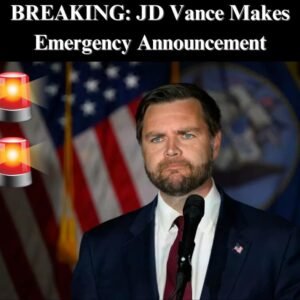In a significant and contentious confrontation on Capitol Hill, Vice President JD Vance has issued a stark warning regarding what he describes as “rogue” federal judges. He believes these judges are exceeding their constitutional authority and obstructing the President’s ability to implement his policies. Vance’s comments come in the wake of various judicial setbacks that have hindered key initiatives from the Trump administration, highlighting the growing rift between the executive branch and the judiciary.
The Trump administration has faced numerous judicial challenges, including rulings that have blocked efforts to end birthright citizenship, freeze federal grants, and reform agencies like USAID and the Consumer Financial Protection Bureau. Vance argues that these judicial interventions are not only unlawful but also represent an attempt by judges to micromanage executive authority, a power he insists belongs solely to the President and his appointees.
This situation raises critical questions about the balance of power among the branches of government. Vance asserts that judges should not dictate the actions of the executive branch, claiming that their interference undermines the President’s constitutional authority. The Vice President’s remarks reflect a broader Republican sentiment that views judicial activism as a significant threat to effective governance.
The stakes in this ongoing conflict are substantial. Beyond the immediate implications for specific policy initiatives, this struggle touches on the fundamental principles of American governance. The potential fallout extends from the halls of Congress to the daily lives of millions of Americans who rely on government services. In this polarized political climate, every action and statement is scrutinized, often becoming a rallying point for supporters or a flashpoint for critics.
Vance’s warnings are part of a larger call for judicial restraint. He believes that the judiciary’s role should be to check abuses of power rather than to interfere with executive decision-making. He argues that the proper functioning of the executive branch is vital for national security and economic stability, and any judicial overreach poses a significant risk.
In response to these judicial challenges, President Trump has echoed Vance’s sentiments, emphasizing the importance of allowing the executive branch to pursue its agenda without judicial interference. He has expressed disappointment with judges whose rulings he perceives as obstructive, stating that no judge should have the authority to make decisions that impede the administration’s efforts.
Republican leaders have rallied around Trump, condemning judges who they believe are obstructing government efficiency. Some members of Congress are even considering articles of impeachment against federal judges accused of overreach, a move that would represent a significant escalation in the partisan conflict surrounding judicial oversight.
The constitutional debate at the heart of this issue revolves around the role of judicial review in American governance. While the judiciary is tasked with ensuring that executive actions comply with the Constitution, critics of the current judicial interventions argue that such oversight can sometimes be perceived as overreach. Legal experts emphasize that judicial review is a necessary safeguard against abuses of power, ensuring that no branch of government exceeds its authority.
As this confrontation unfolds, the implications for American governance are profound. The potential for impeachment proceedings against judges could reshape the balance of power between the branches of government, raising concerns about the independence of the judiciary. The current political climate, marked by deep ideological divides, complicates the possibility of bipartisan cooperation, making it increasingly difficult to reach consensus on critical issues.
In conclusion, the ongoing struggle between the executive branch and the judiciary, as exemplified by Vice President Vance’s warnings and President Trump’s defense of executive authority, represents a pivotal moment in American governance. The choices made in the coming weeks will not only impact immediate policy outcomes but also have lasting implications for the balance of power and the principles of democracy. It is essential for lawmakers to engage in constructive dialogue and seek common ground to ensure that the government can function effectively while respecting the vital role of judicial review. The future of American governance hinges on the ability to navigate these challenges with a commitment to cooperation and accountability.
